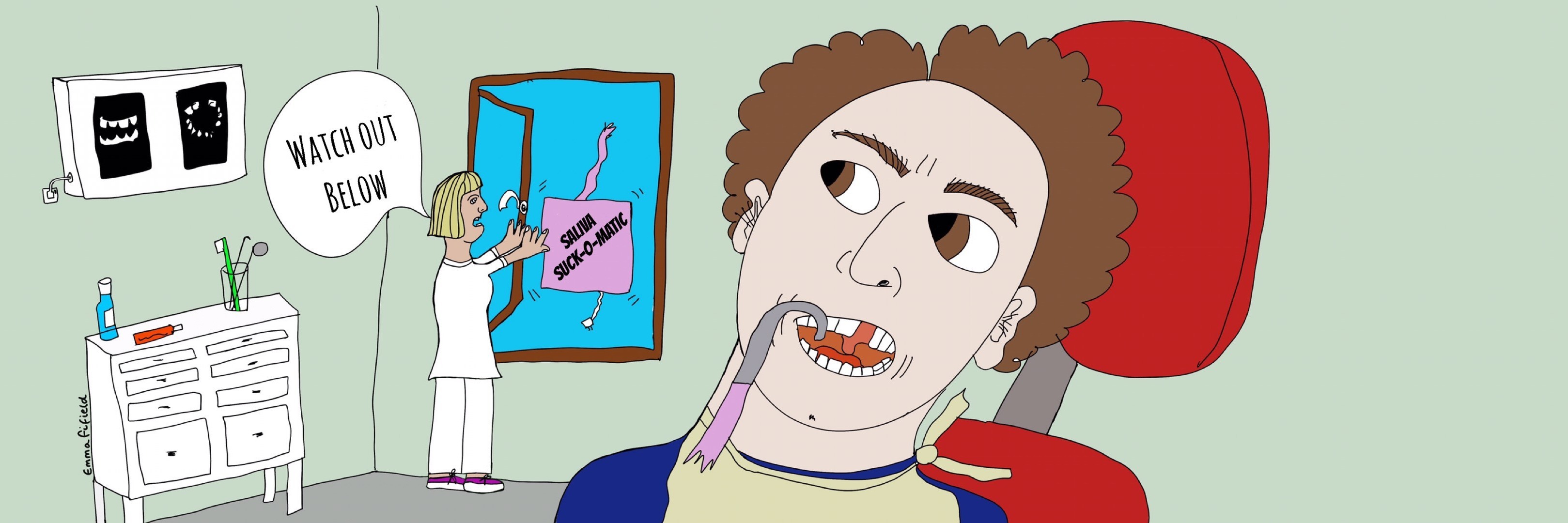I am a Dental Hygienist and My Ears Were Permanently Damaged by the Whine of Dental Equipment
Noise exposure is a leading cause of the painful sound sensitivity known as hyperacusis. This dental hygienist from Florida was injured by cumulative noise exposure at her workplace. Read more patient stories and a version of this story on our website here: Hyperacusis Research.
I loved my career as a registered dental hygienist. It was very rewarding and I loved my patients.
My days were filled with the piercing whine of dental equipment, with my head positioned just inches from the motorized whirr. I never thought twice about the noise.
After 22 years, the suction started bothering my ears. One day in 2008, I whipped the suction, known as the saliva ejector, out of a patient’s mouth and threw it in the trash.
I stopped using the suction and instead would have the patient spit. I started doing hand-scaling only. If a patient requested the high-pitched ultrasonic scaler called the Cavitron, I would deny them.
I put cotton rolls in my ears as crude earplugs. They didn’t work very well.
If I knew what was to come, I would have quit right then.
Instead, I was terminated two years later. I think the patients were complaining about me.
I had burning and stinging pain in my ears. I went to doctors, ENTs and the Cleveland Clinic, but nobody knew what was wrong. I mentioned my noisy job but nobody put it together. Noise usually causes deafness, not pain.
One ENT told me I had refractive hearing, whatever that is. Finally, an audiologist told me I had hyperacusis.
I continued to worsen. Noise became increasingly painful. I couldn’t stand the sound of my own voice. When driving in the rain, the raindrops hitting the windshield hurt me. I had burning ear pain even in a quiet setting.
My life turned upside down. I had to sell my house and find a cheaper condominium. My boyfriend was loud with a deep voice and his snoring just about killed me. I had to break up with him so he was free to go find someone normal.
My life is now very guarded. The activities I cannot do are much more than the things I can do out in the world.
It is difficult for me to venture out of my quiet home, let alone to socialize.
I am fortunate that my sister pulls me out of the house every day. My routine is either lap swimming or walking. I use Bose noise-canceling earbuds attached to an iPod and listen to very soft music on low to drown out the sounds of the world.
Still, my sister doesn’t get it. She asks, “When can you go to a concert with me?” My answer is, “Never.”
It is a challenge even to shop at the supermarket. The dings, dongs, beeps, boops and bells are loud and horrible. I try not to buy too much at a time so I can escape the scanner. I run away from people talking and laughing.
This wicked affliction is so isolating. I get jealous of people with normal ears.
I am luckier than some because I am a mild case, and I do not suffer much from tinnitus, or ringing in the ears. But even a mild case of hyperacusis is severe. A noise injury sounds like no big deal, but it is devastating. It is hidden. We suffer alone.
I spent my career and my livelihood, which has now been cut short, concerned with dental health. We are taught to brush and floss our teeth, and to schedule regular hygiene appointments for cleaning — but nobody knows or cares about ears.
Ears are precious and fragile, so much more than we could ever imagine. This lesson is learned the hard way when something goes wrong.
We must teach the dangers of noise in school. Everyone should have knowledge about how the cells in our ears die from overexposure to loud sounds.
Just as flossing daily saves our dentition, this affliction is preventable with ear protection when needed. Plaque erodes teeth, and noise destroys ears. A brief exposure isn’t a problem, but the damage creeps up slowly. For me, it was suddenly 22 years too late.
We want to hear your story. Become a Mighty contributor here.
Illustration by Emma Fifield

